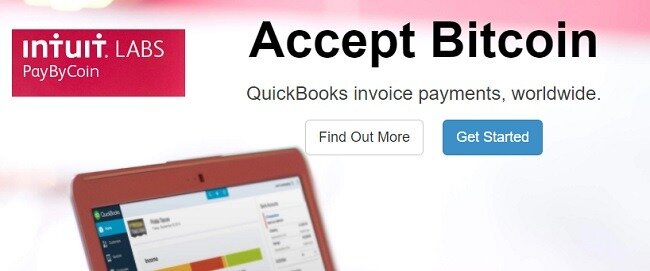Contents
Regulatory frameworks such as AML and KYC help to minimize these threats. By improving the public image of the blockchain industry, KYC and AML could help to attract more investment into Web3. Further, it could provide a building block for enterprise blockchain solutions. AML laws aim to prevent illicit funds from entering the financial system. During this period, deposits stay in the initial depositing account for at least five days.

Not only does it help to build confidence among investors, but it also reduces the risk of scams and money laundering. KYC for crypto is here to stay — and regulatory expectations are increasing worldwide as the volume and velocity of cryptocurrency transactions ramps up. As a result, crypto exchanges can’t afford to wait on deploying and integrating best-of-breed KYC solutions. If the amount of the transaction is greater than $10,000 in one day, exchanges must both obtain personal data and send information about the transaction to FinCEN.
KYC Automation
KYC techniques may vary depending on the registration location and operation area of the business. Even in the EU countries, the basic verification procedures are different, although they are working towards a common policy. One member stressed that not all tools are the same, so don’t settle for a less reliable solution to cut costs. If worst comes to worst and the tool fails, you’re going to want to tell regulators you used one of the top names in the industry.

KYC programs that include enhanced identification verification help maintain the market’s overall stability and build confidence among investors. So, while it’s possible to trade crypto without KYC, it’s generally not recommended. When using an exchange that does not require KYC, it is important to take extra steps latest news informations about cryptocurrency to protect one’s identity and personal information. With Persona, your business gets GDPR and CCPA compliance right out of the box. “I don’t ever want to store PII, and it’s awesome that with Persona, we don’t have to even think about it — we just send everything through Persona, and SSNs never even hit our system.
Anti-Fraud Measures to Protect Your Business and Customers
Furthermore, these regulations are often slow to catch up to recent trends. As such, they may struggle to keep up to date with the evolving threats that they aim to address. Any political figure or their immediate family could come under scrutiny during KYC. Once banks verify the legitimacy of client funds, they are free to enter the financial system. When illicit currency enters the banking system, it can be transacted multiple times in a way that disguises the origins of the funds. Once funds are successfully layered and “clean”, they can be funneled into real estate and other financial instruments.
- While some analysts maintain that these laws prevent blockchains from being censorship-resistant, others argue that they are essential for blockchain adoption and legitimacy.
- On top of this, decentralized exchanges tend to be less user-friendly than quality centralized exchanges and they cost users more in transaction fees.
- AML includes a vast range of regulatory processes designed to curb money laundering.
- Address verification is not always mandatory but can be a part of a more thorough KYC procedure.
- Note that the identity verification documents required differ depending on your nationality.
Know-Your-Customer , refers to the checks and steps that a business conducts/takes to know who their customers are, confirm their customers’ identities, and understand the risk that each customer poses to the business. Usually, the first phase of the KYC process requires collecting customer information, followed by customer due diligence , which involves identity verification, watchlist screening, risk assessment and ongoing monitoring. For high-risk customers or high-value transactions, KYC via enhanced due diligence policies comes into play. In crypto, KYC means that these practices are implemented in a way that is suitable for cryptocurrency enterprises.
Data Security
Only when a customer’s identity is verified can he or she trade on an exchange. This is particularly important in a regulatory environment in which exchanges must comply with know-your-customer laws. A short while ago, government authorities around the world have started developing regulatory frameworks to control the digital asset industry. And while some believe that KYC violates basic privacy, in practice, KYC measures protect users and platforms from fraudulent and illegal activities.
He has worked as a reporter on European oil markets since 2019 at Argus Media and his work has appeared in BreakerMag, MoneyWeek and The Sunday Times. P2P allows you to trade Bitcoin , Dash , Litecoin , Ethereum , Bitcoin Cash , and other supporting currency. LocalCryptos allows the community to vote on potential new coins for P2P trading. It has a customizable interface in which you can add order types, charts, and indicators. The different monitors are suitable for experienced and novice traders.
Senior Compliance Officer
Further research has also suggested that illicit cryptocurrency transactions totaled around $14 billion in 2021 – a rise of 79% from $7.8 billion in 2020. However, although DEXs are not currently bound by KYC requirements, regulators around the world are continually altering the laws and regulations that govern crypto KYC. These institutions are not subject to current regulations because they blockchain, cryptocurrency and bitcoin for businesses are not considered to be financial intermediaries or counterparties. This is because their users trade directly with one another by leveraging the infrastructure provided by the DEX. But it’s one thing to recognize the need for KYC compliance and another to implement these rules at scale. Here’s what crypto firms need to know about knowing their customers and ensuring KYC compliance.
If cryptocurrency exchanges embrace KYC and customer verification methods, then the market will become more stabilized. This will increase the value of the market and will attract new customers to the space. Owners of crypto exchanges running non-KYC (or non-compliant) operations often choose to remain anonymous to avoid legal scrutiny. As a result, investors must have a high level of trust in the people responsible for running the exchange.
This makes cryptocurrency exchanges ideal places for criminals to launder their money. As global regulatory requirements grow more complex, KYC processes — collecting customer data, verifying key information, protecting personally identifiable information , and more — can prove a complex and cumbersome task. Process is a foundation of AML/CFT compliance regulations around the world and requires financial institutions to both identify their customers and work to understand the nature of the business in which they are involved.
- Chinese lawmakers cited environmental concerns as the driving factor for the ban.
- Before we dive into AML and KYC crypto laws, we should start with the basics.
- In particular, a person verifying documents may not differentiate a forged document from an authentic one.
- KYCs are also used to confirm whether or not the customer is using their real identity when they sign up for an account on a crypto exchange.
- This helps to reduce the risk of being hacked or subjected to market manipulation.
Founded in 2017, CoinEx allows for the trading of more than 500 tokens, including its CoinEx token named CET, and over 860 trading pairs. The KYC verification procedure is only required from users who wish to withdraw more than $10,000 in 24 hours. Bisq is not a website and does not provide any centralized services because it is a peer-to-peer trading network. Users can connect and conduct transactions with other BISQ Network users using simple software that they run on their PC or mobile device.
It has the top cryptocurrencies with high market capitalization, like BTC. The no KYC exchange is a low-cost platform that offers low transaction fees. You access a conversion calculator for trading and to know your crypto taxes.
- Even though most crypto exchanges have started adopting regulatory guidelines, investors have the option to choose crypto exchanges that encourage greater anonymity by not imposing KYC processes.
- Simply put, crypto custody means securing the private key that proves you own of the funds held within your crypto wallet.
- They argue that exchanges should not request users for personal information or documents.
- Fixedfloat provides a detailed description of each cryptocurrency which is essential for new crypto traders on the market.
You can register your accounts without KYC, but some may have transaction limits. Many No-KYC exchanges allow crypto investors to operate incognito without revealing their personally identifiable details to crypto exchanges. Cryptocurrency exchanges that do not require KYC provide the same security and reliability as regular trading platforms. However, some Non-KYC exchanges may limit the deposit and withdrawal amount. We have researched 40+ exchanges and curated a list of the Top 6 anonymous crypto exchanges.
Is KYC Binance safe?
Binance is one of the few exchanges with a secure and dedicated system for KYC data collection and management.
Both options are useful for companies, however manual checks come with more risks. Participation in and provision of financial services related to an issuer’s ethereum price latest offer and/or sale of a virtual asset. To conduct KYC quickly and properly, crypto services often delegate this to specialized third-party solutions.
